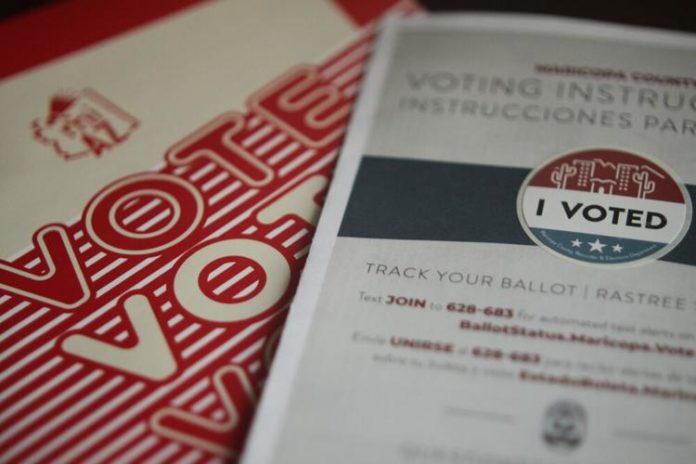
The Arizona Legislature on Thursday rushed to fix a glitch created by the once-a-decade redrawing of congressional and legislative district lines that led to confusion and wild swings in the number of qualifying signatures candidates need to gather to appear on the ballot.
Republican Gov. Doug Ducey quickly signed the measure after it passed the Senate and House unanimously on Thursday.
The bill is intended to correct what Republican House Majority Leader Ben Toma called “a pickle” that people seeking office were facing.
New district maps and numbering led to the problem, and it was compounded by a delay in adopting new maps because of late U.S. Census numbers. The Legislature’s decision two years ago to move up the primary also moved up the filing deadline for public offices, making the crunch more severe. The filing window opens Friday.
The result was that many incumbents and challengers suddenly needed to collect many more signatures than they thought they needed. Some also needed far less. The number of signatures needed for GOP or Democratic candidates is calculated based on the number of party votes in that district.
For instance, Toma needed to gather almost 800 signatures in his old legislative district. But because his district was given the number of a heavily Democratic one represented by Minority Leader Reginald Bolding with far fewer GOP voters, he only needs to collect the 291 Republican signatures needed in that district, which is actually miles away.
That’s a benefit for Toma, but many other districts see the reverse and need more signatures than candidates had been planning to collect.
“Which is why we’re in this pickle, and it’s important that we fix it,” Toma said.
The fix is that candidates can choose the lesser of their new district’s required signatures or the statewide average of all legislative districts, which is 492 for Republicans or 469 for Democrats. The same workaround applies to offices such as county supervisors and school boards.
The House approved the bill introduced Thursday morning on a 58-0 vote and the Senate backed the bill on a 27-0 vote just a few hours later. Ducey signed it within an hour of the Senate vote.
The House and Senate waived their normal rules to immediately vote on the bill. It has an emergency clause and went into effect immediately upon the governor’s signature.
Republished with the permission of the Associated Press.













